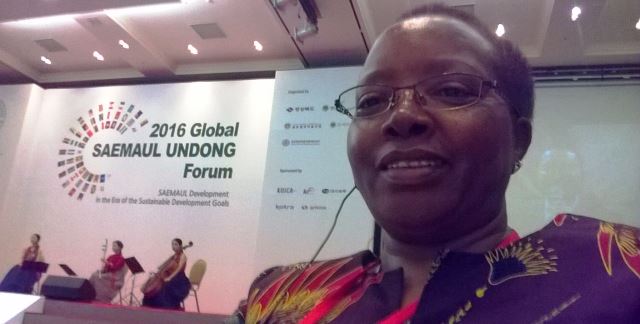NGEC ATTENDS THE 2016 GLOBAL SAEMAUL UNDONG FORUM
The Saemaul Undong, also known as the New Community Movement, New Village Movement, was a political initiative launched on April 22, 1970 by South Korean president Park Chung-hee to modernize the rural South Korean economy. The movement initially sought to rectify the growing disparity of the standard of living between the nation's urban centers, which were rapidly industrializing, and the small villages, which continued to be mired in poverty.
Diligence, self-help and collaboration were the slogans used to encourage community members to participate in the development process. The early stage of the movement focused on improving the basic living conditions and environments whereas later projects concentrated on building rural infrastructure and increasing community income.[ It aimed to develop a social community to guarantee long term development and better life for citizens. It sought to establish institutions such as co-operatives to strengthen national development. This is the strategy together with leadership of the Government and mass participation of the people that is attributed to the rapid development of the Republic of South Korea.
The guiding principles of the movement were Governance (including strong leadership, good guidelines and concrete policies), People’s participation and Assistance of Technology and Finance. The Strategies include: promotion of a ‘can do spirit’, an enlightening perception of gender equality and Human Rights.
The Saemaul Movement has been accepted by the United Nations as one of the efficient rural development models in the world. The Economic Commission for Africa (ECA) has decided to select the Saemaul Movement as a base model for the Sustainable Modernization of Agriculture and Rural Transformation (SMART) program in 2008. Also, the movement has been exported to more than 70 countries, sharing the rural development experience world-wide.
The Commission was represented by Comm. Florence Wachira who presented a paper titled: ‘The Status of Gender Equality in Developing Countries: Initiatives and Challenges in addressing Inequality’.
View Dr. F. Wachira's Presentation


Comments